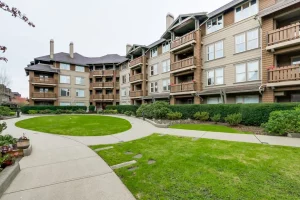Budgeting can be daunting in the best of circumstances.
For the South African homeowner and Trustee in a Sectional Title Scheme, there may be some doubt regarding how monthly levies are determined, how to go about budgeting for Scheme expenses, and how to manage reserve funds to ensure they are available when required.
In this article, we will touch on levies, how they are determined, how they are utilised, as well as what the budgeting requirements are in terms of the Sectional Titles Schemes Management Act of 2011.
What are levies?
Levies are a mechanism used to share between all the owners in a Scheme the expenses which relate to common property within that scheme. These expenses comprise both general expenses and specific repairs and maintenance expenses.
There are two types of levies, a general monthly levy which is based on the approved annual budget, and a special levy which is used in the case of unplanned expenditure for which no funds are available.
How are levies utilised?
There are two main types of expenses which levies are utilised to cover which are outlined in the Act – general expenses and future maintenance and repair of common property.
General expenses consist of once-off and monthly recurring costs such as:
- Repairs and maintenance of the common property
- Electricity, assessment rates, water & sewerage, and refuse removal
- Services to the building/land
- Accounting, management, and administration fees
- Insurance premiums
- Security and staff costs
Future maintenance and repair expenses comprise all expenses required to maintain the common property in a good state of repair during the next 10 years. This is contained in a 10-year maintenance, repair, and replacement plan, which is accompanied by the reserve budget.
How are levies determined?
Simply put, levies are based on the annual budget and reserve fund requirements and allocated to each owner based on their participation quota, which is in essence their share of the total Scheme.
This highlights how important it is to plan well when looking at the expenses that the Scheme will have to incur, in the short and the long term, as this determines what the required contribution is that needs to be levied from owners and helps to avoid the need for a special levy.
Budgeting 101
In terms of the Act, there are certain requirements regarding budgeting and available funds that assist the Trustees of each Sectional Title Scheme to arrive at the levies payable by owners.
Section 3(1)(a) and (b) of the Act requires each Scheme to maintain sufficient levels of funds to reasonably cover the Scheme’s annual operating expenses and future maintenance and repair costs.
These expenses are included in the annual budget that must be prepared by the Scheme and approved at the Annual General Meeting (AGM).
The preparation of the budget and determination of the required reserve fund level may seem like a daunting task if you are a first-time Trustee. However, with the expertise of your Managing Agent, this process can truly be a breeze.
Make Community Scheme budgeting easy with our FREE Budgeting Tool













